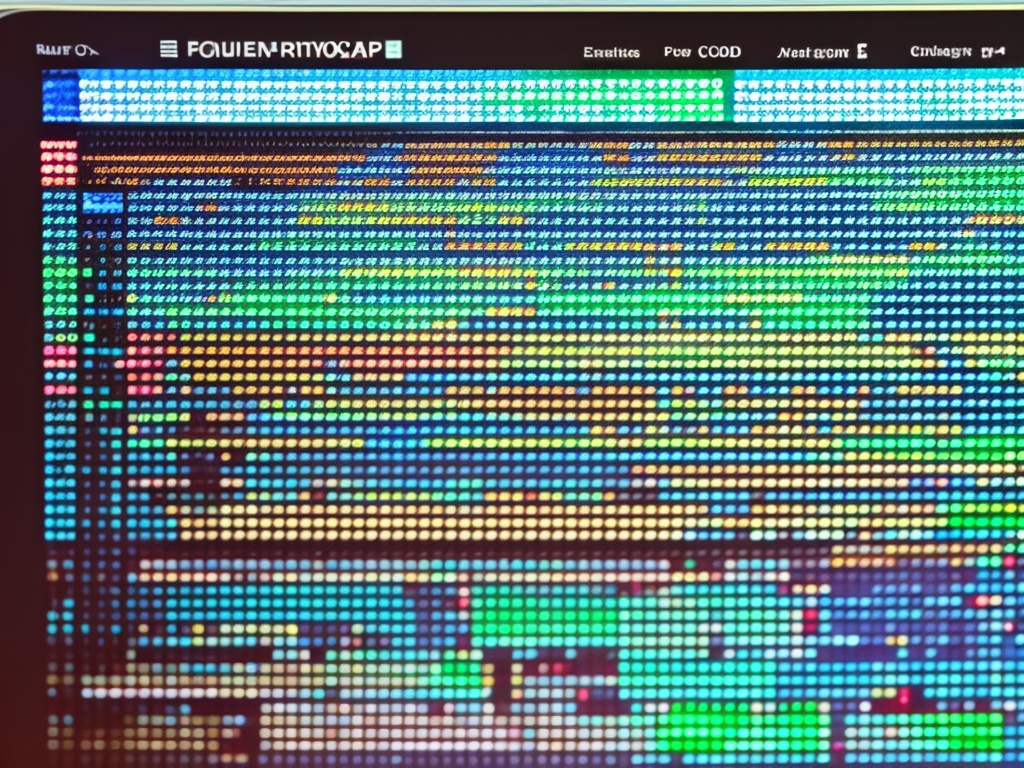Rotating proxies play a crucial role in enhancing anonymity, preventing IP bans, and supporting seamless web scraping processes. In the context of Python requests, the utilization of rotating proxies is fundamental for programmers seeking to maintain a high level of anonymity and efficiently scrape data from various websites.
123Proxy offers unmatched rotating residential proxies with unlimited traffic and a diverse pool of high-quality real residential IPs from over 150 countries. These proxies are designed to support IP rotation, enabling programmers to execute scraping tasks with the assurance of anonymity and reliability. The expansive IP pool, geo-targeting capabilities, and flexible authentication options make 123Proxy’s rotating residential proxies an ideal choice for Python requests.
Key Takeaways
- Utilize reliable and diverse rotating proxy services to ensure a wide range of IP addresses and seamless performance for Python requests.
- Avoid predictable proxy IP addresses to prevent detection, implement randomization techniques, and enhance anonymity when scraping data.
- Combine IP rotation with user-agent rotation in Python requests to maintain anonymity, prevent IP bans, and ensure smooth web scraping processes.
- Regularly check for failures while scraping, remove non-working proxies, and maintain a clean and updated proxy list to ensure uninterrupted data extraction.
- Periodically re-check the proxy list to maintain optimal performance, prevent IP bans, and ensure the effectiveness of rotating proxies in Python requests.
Introduction to Rotating Proxies
Rotating proxies play a crucial role in enhancing online security and anonymity. These proxies regularly change IP addresses, providing users with a diverse range of identities to mask their online activities. In Python requests, utilizing rotating proxies is essential for various tasks such as web scraping, data extraction, and bypassing content restrictions.
When it comes to rotating proxies, 123Proxy offers a top-notch solution with its rotating residential proxies. These proxies come with an unmatched IP pool, geo-targeting options, sticky sessions, and unlimited concurrent sessions, making them ideal for programmers seeking reliable proxy services.
Utilizing Reliable and Diverse Proxy Services
Exploring Different Proxy Services Available
When it comes to utilizing rotating proxies in Python Requests, one of the key strategies is to explore the different proxy services available in the market. There are various proxy providers offering rotating residential proxies that can help you with your web scraping needs. By exploring these options, you can find the most suitable service for your specific requirements.
Comparing the Benefits of Rotating Proxies from 123Proxy
123Proxy offers Unmetered Residential Proxies with a high-quality real residential IP pool from 150+ countries. These proxies come with features like geo-targeting at the country level, sticky sessions, and unlimited concurrent sessions. By comparing the benefits of 123Proxy’s rotating proxies with other providers, you can make an informed decision and choose a reliable service for your Python Requests.
Tips for Choosing Reliable Proxy Services
When selecting proxy services for your Python Requests, it’s essential to consider factors such as the size of the proxy pool, geo-targeting capabilities, rotation duration, and authentication types. Look for providers that offer diverse IP addresses, reliable rotation mechanisms, and excellent customer support. By following these tips, you can ensure that you are utilizing reliable and effective proxy services for your web scraping projects.
Avoiding Predictable Proxy IP Addresses

Using predictable proxy IP addresses poses significant risks for programmers. Predictable IPs make it easier for websites to detect and block the proxy, defeating the purpose of implementing proxies. To prevent detection and maintain the effectiveness of rotating proxies, programmers need to implement randomization techniques in proxy selection.
- Randomization techniques can include rotating through a diverse pool of IP addresses from various locations and sources, ensuring that the requests do not originate from the same IP address every time.
- Programmers should also configure the proxy service to avoid patterns in IP address selection, allowing for a more randomized and unpredictable approach to IP rotation.
By actively avoiding predictable IP addresses, programmers can enhance the anonymity and reliability of their web scraping processes, effectively mitigating the risks of IP bans and ensuring smoother operations.
Combining IP Rotation with User-Agent Rotation
Importance of rotating user-agents along with IP addresses
When utilizing rotating proxies in Python requests, combining IP rotation with user-agent rotation is crucial for enhancing anonymity and preventing IP bans. By rotating both IP addresses and user-agents, programmers can mimic organic user behavior and avoid detection by websites that track scraping activities.
How to implement user-agent rotation in Python requests
To implement user-agent rotation in Python requests, programmers can leverage libraries like Requests, which allow for easy customization of HTTP headers. By dynamically changing the user-agent string for each request, users can create the illusion of multiple users accessing the website, thereby reducing the risk of being blocked.
Strategies for seamless integration of IP and user-agent rotation
Programmers can seamlessly integrate IP and user-agent rotation by defining a pool of user-agent strings and rotating them at the same frequency as IP addresses. This synchronized rotation ensures that requests appear unique and distributed across multiple sources, improving the overall scraping performance.
Checking for Failures While Scraping
When utilizing rotating proxies in Python requests for web scraping, it’s crucial to be vigilant about potential failures. By implementing effective strategies for checking and handling these failures, programmers can ensure the smooth operation of their scraping processes.
Identifying Common Failure Points in Web Scraping Processes
One of the key steps in avoiding failures while using rotating proxies is to identify the common points of failure in web scraping processes. This includes recognizing potential issues such as CAPTCHA challenges, IP bans, and connection timeouts. By pinpointing these failure points, programmers can proactively address them to prevent disruptions.
Tools for Monitoring Proxy Performance and Detecting Failures
There are various tools available that can aid programmers in monitoring the performance of rotating proxies and detecting potential failures. These tools offer features such as IP geolocation verification, latency checks, and error detection to ensure that the proxies are functioning as intended. By leveraging these tools, programmers can promptly identify and address any issues that may arise.
Best Practices for Handling Failed Requests and Switching Proxies
Programmers should establish best practices for handling failed requests when using rotating proxies. This involves implementing mechanisms to automatically switch to a different proxy in the event of a failure, as well as maintaining a pool of reliable proxies to minimize downtime. Additionally, incorporating retry logic and error handling into the scraping process can contribute to more robust proxy management.
Removing Non-Working Proxies
When using rotating proxies in Python requests, it’s crucial to implement techniques for detecting non-working proxies. This involves regularly checking the responsiveness and validity of the proxies. One effective method is to send test requests through the proxies and monitor the response times. If a proxy consistently fails to respond or provides inaccurate data, it should be flagged as non-working.
Automating the process of removing non-responsive proxies is another essential strategy. By leveraging Python scripts, programmers can create routines to automatically identify and eliminate non-working proxies from the rotation. This ensures that only reliable and functional proxies are utilized for web scraping and other activities.
The importance of maintaining a clean and updated proxy list cannot be overstated. A regularly updated list ensures that non-working proxies are swiftly replaced with operational ones. This proactive approach minimizes disruptions during web scraping processes, maintains anonymity, and helps prevent IP bans.
Periodically Re-Checking the Proxy List

Frequency for Re-Checking Proxy List
One crucial strategy when using rotating proxies in Python Requests is to periodically re-check the proxy list. The frequency of re-checking the proxy list depends on the usage pattern and the stability of the proxies. For high-volume scraping tasks, it is recommended to re-check the proxy list at least once every hour to ensure uninterrupted proxy availability.
Tools for Automating the Re-Checking Process
Automating the re-checking process of the proxy list can greatly streamline the workflow of Python Requests applications. Developers can leverage tools like Scrapy, Selenium, or Beautiful Soup to automate the proxy list re-checking process. These tools can be integrated into Python scripts to automatically verify the status and reliability of proxies.
Benefits of Regularly Updating the Proxy List for Optimal Performance
Regularly updating the proxy list offers several benefits for achieving optimal performance in web scraping tasks. By ensuring that the proxy list is up-to-date, developers can prevent disruptions caused by non-functional proxies, maintain consistent anonymity, and avoid IP bans. Additionally, regularly updating the proxy list allows for the inclusion of new proxies with better speed and reliability, enhancing the overall efficiency of Python Requests applications.
Summary
Top strategies for using rotating proxies in Python requests involve leveraging reliable and diverse proxy services such as 123Proxy’s rotating residential proxies, avoiding predictable proxy IP addresses, combining IP rotation with user-agent rotation, checking for failures while web scraping to ensure smooth processes, removing non-working proxies, and periodically re-checking the proxy list. By following these strategies, programmers can maintain anonymity, prevent IP bans, and achieve successful web scraping with Python requests.
FAQ
Q: How do you rotate a proxy in Python?
A: To rotate a proxy in Python, you can store the proxy list as plain text, import it as an array, check each proxy, separate the working ones, and remove failures while scraping.
Q: How do you use rotating proxies?
A: Using rotating proxies involves sending a request to a proxy management server, which picks a proxy at random and sends the request to it, and then the proxy forwards the request to the target webpage for data extraction.
Q: How do I use proxies requests in Python?
A: To use proxies in Python requests, specify the proxies parameter and set its value to the corresponding variable to ensure that the request is executed using the proxy.
Q: What types of proxies and why is it better to use rotating proxies rather than static proxies for managing multiple social media profiles?
A: Rotating proxies are preferable for tasks like web scraping due to their ability to change IP addresses frequently, while static proxies are more suitable for activities requiring the same IP for extended periods, such as managing social media accounts.
Q: What are some good strategies for using rotating proxies in Python requests?
A: Effective strategies include utilizing reliable and diverse proxy services, avoiding predictable IP addresses, combining IP rotation with user-agent rotation, checking for failures while scraping, removing non-working proxies, and periodically re-checking the proxy list for optimal performance.
Reference
[1]- proxyscrape.com
[2]- zenrows.com
[3]- webscrapingapi.com
[4]- 123Proxy
